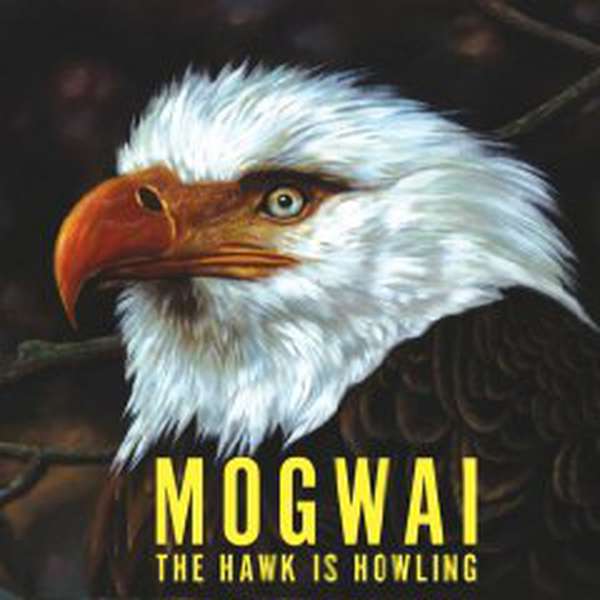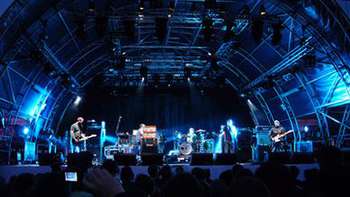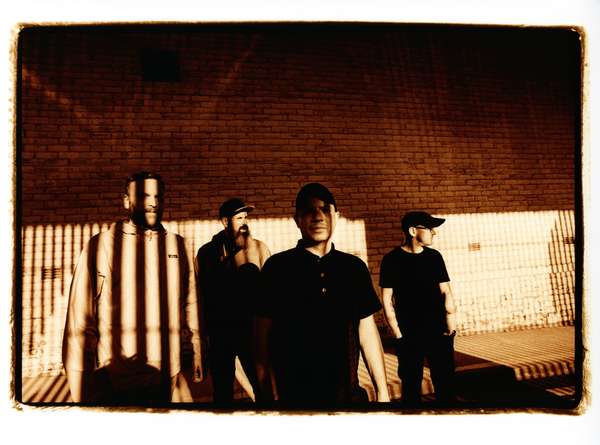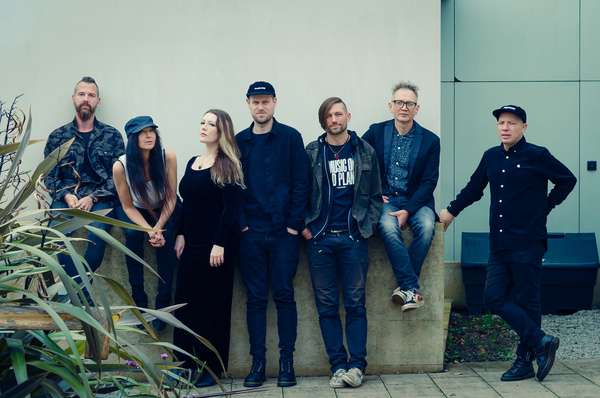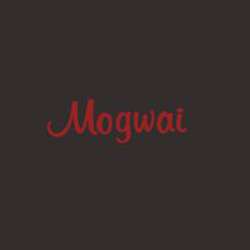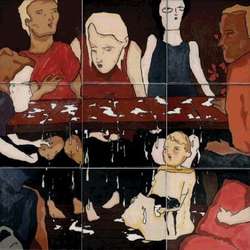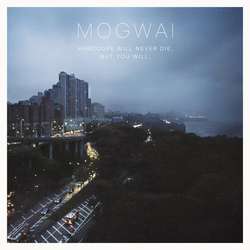The usual post-rock sites were ablaze with "new Mogwai is boring" posts a few weeks before it was released, which signaled not only the impending leak had finally happened, but also the expected, but all-too-easy, tendency to judge before really listening. I would have just ignored these dismissals anyway, but they got me wondering what to expect with album previews as disparate as "Batcat" and "The Sun Smells Too Loud," which are enjoyable songs in their own right, but almost sounded like two different bands entirely.
Sure, The Hawk is Howling isn't highly innovative but that does not make it automatically boring, especially when compared to some of the albums being put out by more novice post-rock bands, who are unfortunately late to the party that Mogwai did a lot to get started.
The Hawk Is Howling falls somewhere between the depression of Come On Die Young, the triumphant beauty of Happy Songs for Happy People, and the immediacy of Mr. Beast without sounding like carbon copies of any of those albums. This album shows how great post-rock can still be in able hands.
The riffs on The Hawk is Howling are surprisingly fresh on a number of fronts: the more laidback, '70s psychedelic sound explored on the song "The Sun Smells Too Loud" to the noisiness and borderline sludginess of "Batcat" and "The Precipice" to the haunting layered melodies of "Daphne and the Brain," "I Love You, I'm Going To Blow Up Your School," and "Scotland's Shame." And somehow all of these different sides to Mogwai coexist well on one record.
A lot of the songs rely on drone-like repetition but somehow morph imperceptibly into something much more monolithic. With novice, derivative post-rock bands you can practically count down the crescendo leading up to the big explosive climax or the "unexpected" volume drop-off because the formula has become just that predictable. But a post-rock band that knows what it's doing always catches you off guard, just as Mogwai has done album after album. There aren't crescendos on this album as much as there are subtle shifts in perception, leading insistently toward not really a climax, but some kind of insane, warped meltdown that may sound familiar but causes an undeniable alteration of mood that just can't be pinned down.
This is the first Mogwai album in a long time to not have a single song with vocals - not even vocoder-processed vocals - but that is of little concern after hearing how expressive the instrumentation is on The Hawk is Howling. One thing that really stands out this time around is the piano, organ, and synth playing, which provide a highly emotional foundation on which the simple but effective architecture of the songs are built.
Post-rock has sadly become what many say is an overpopulated genre in the last couple of years. I find it strange so many bands are kind of phobic about that label because, to me, it is a convenient way to put under one semantic umbrella a lot of bands that may not sound alike but share a common purpose. Whether the current post-rock community stays its course or crumbles due to a "too many chiefs, not enough Indians" kind of scenario, bands like Mogwai are still going to be here making music, regardless of what you call it, because it's what they do and there are going to be people that buy said music or support it in some way. I am convinced even the next Mogwai album will be just as relevant and interesting as this one and the ones that came before. Mogwai is a leader, not a follower, and most importantly, in it for the long haul.
Mogwai now just needs to concentrate on nursing its drummer back to health from pacemaker complications that cut the band's North American tour short in September. Get well soon, Martin, and don't forget to come to Chicago next time around!
